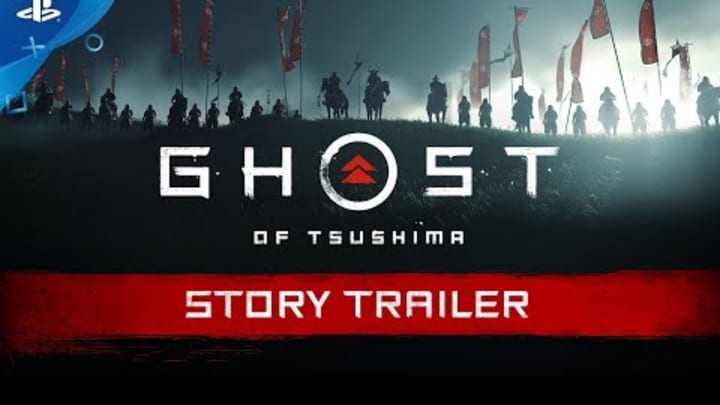Why Ghost of Tsushima Feels Like You’re Living a Samurai Film
Some games hand you a sword. Ghost of Tsushima hands you a script—and then lets you direct your own samurai epic.
It’s not just how it plays, or even how it looks. It’s the vibe. The atmosphere. The way it slows you down, draws you in, and makes every step feel like a scene from a movie you'd swear you’ve watched a hundred times—even if you haven’t.
Every Frame Feels Like a Painting
The moment you take control of Jin and ride into a golden forest or across a misty field, something clicks. This isn’t just open-world eye candy—it’s cinematic poetry. The kind that lingers.
You’ll ride into battle with the wind as your compass. You’ll walk through fire, blood, and falling leaves. And somehow, even in the chaos, there’s this weird peace in how it’s all framed. Like every moment was storyboarded by someone who grew up watching old samurai flicks on repeat.
And then they gave us Kurosawa Mode, just to seal the deal. It’s not a gimmick—it’s a full-on tribute. Black-and-white visuals, film grain, dramatic audio tweaks—it’s the developers tipping their hat to a legend. It says, We get it. We love it too.
Jin’s Story Could’ve Been a Film on Its Own
A lot of games give you heroes. Jin Sakai isn’t just a hero—he’s a man caught between the past and the future. Trapped between honor and survival.
What makes his story so powerful isn’t that he’s perfect. It’s that he isn’t. You watch him wrestle with the weight of his choices, question his legacy, and ultimately redefine what being a samurai even means.
That kind of inner conflict? That’s the heartbeat of every great samurai story. It’s not about who has the sharpest sword. It’s about why they pick it up in the first place.
Swordfights That Feel Like Duels
Combat in Ghost of Tsushima isn’t just functional—it’s graceful. Every standoff feels like a scene out of a martial arts film. You don’t just fight—you perform. You time that first strike, the music swells, the tension snaps—and it feels earned.
It’s not flashy combos or over-the-top animations. It’s restraint. Precision. Style. And that’s exactly why it feels so good.
Even the way enemies wait their turn to fight you one-on-one? Totally unrealistic—but gloriously cinematic. Just like the movies.
The Quiet Hits Harder Than the Noise
The game gives you space to just exist. Sometimes, there’s no mission. No fight. Just wind in the trees, maybe a fox, maybe a haiku. And in those little moments, Ghost of Tsushima says the most.
It respects your time. Your pace. Your silence. And it trusts that you’ll feel something even when nothing is happening.
That’s the kind of storytelling most games don’t even attempt. But here? It’s everywhere.
An Ending That Doesn’t Just Wrap Things Up—It Means Something
Without spoiling anything: Ghost of Tsushima doesn’t go out with fireworks. It ends like a good movie does—on a note that sticks with you. Something quiet. Something personal.
You don’t just finish Jin’s story. You carry it.
Final Thoughts
Ghost of Tsushima isn’t trying to be a movie. But it accidentally became one of the best samurai films you’ll ever experience—because it understands the soul of the genre.
Honor. Sacrifice. Reflection. Beauty in the pain.
And when a game nails all of that? It deserves more than just a place on your shelf. It deserves to be remembered.
